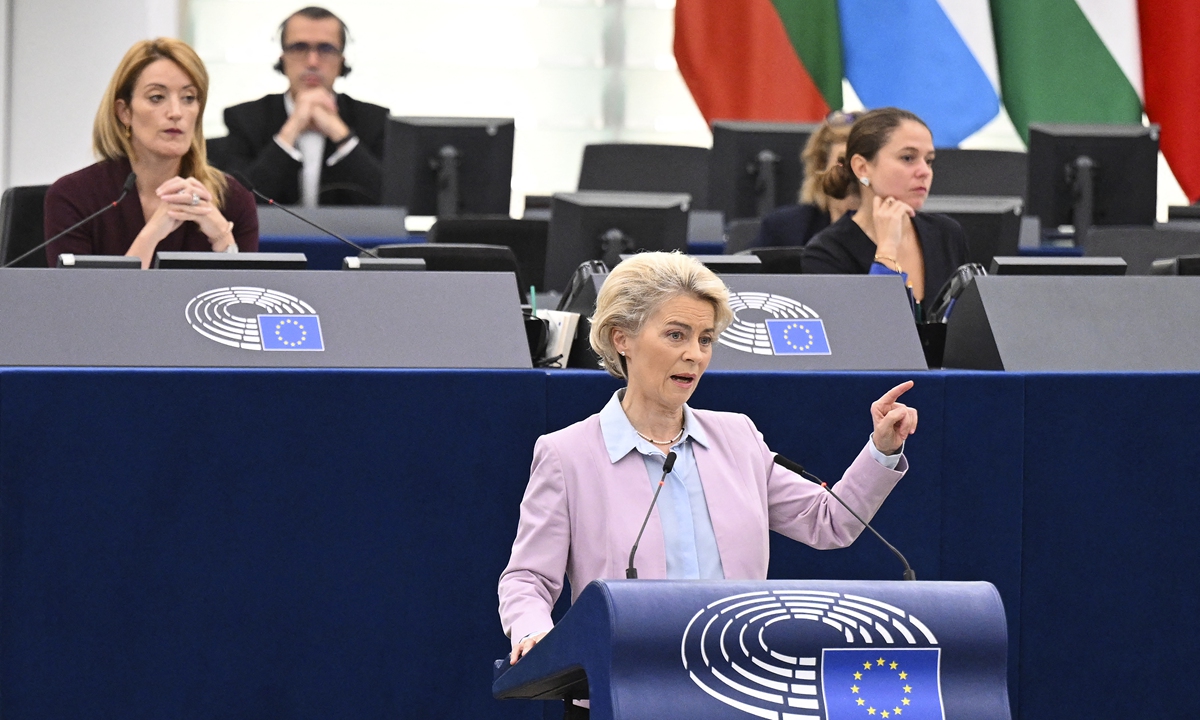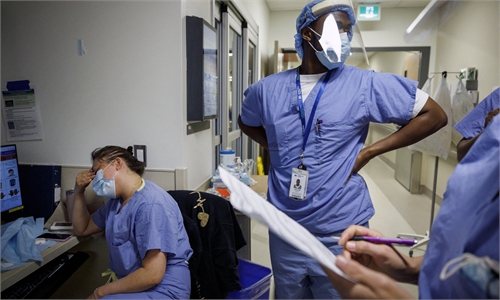
European Commission President Ursula von der Leyen addresses the floor during a debate on the preparation of the European Council meeting of October 20-21, 2022, during a plenary session at the European Parliament in Strasbourg, eastern France, on October 18, 2022. Photo: AFP
After all-night negotiations, the European Union struck a political deal on Tuesday to impose a carbon dioxide emissions tariff on imports of polluting goods such as steel and cement, a world-first scheme aiming to support European industries as they decarbonize.
Negotiators from EU countries and the European Parliament reached a deal at around 5 am in Brussels, on the law to impose CO2 emissions costs on imports of iron and steel, cement, fertilizers, aluminum and electricity.
Companies importing those goods into the EU will be required to buy certificates to cover their embedded CO2 emissions.
The scheme is designed to apply the same CO2 cost to overseas firms and domestic EU industries - the latter of which are already required to buy permits from the EU carbon market when they pollute.
Mohammed Chahim, European Parliament's lead negotiator on the law, said the border tariff would be crucial to EU efforts to fight climate change.
"It is one of the only mechanisms we have to incentivize our trading partners to decarbonize their manufacturing industry," Chahim said.
The aim of the levy is to prevent European industry from being undercut by cheaper goods made in countries with weaker environmental rules.
It will also apply to imported hydrogen, which was not in the original EU proposal but which EU lawmakers pushed for in the negotiations.
Some details on the law, including its start date, will be determined later this week in related negotiations on a reform of the EU carbon market.
Currently, the EU gives domestic industry free CO2 permits to shield them from foreign competition, but plans to phase out those free permits when the carbon border tariff is phased in, to comply with World Trade Organization rules. How quickly that phase-in happens will be decided in the carbon market talks.

